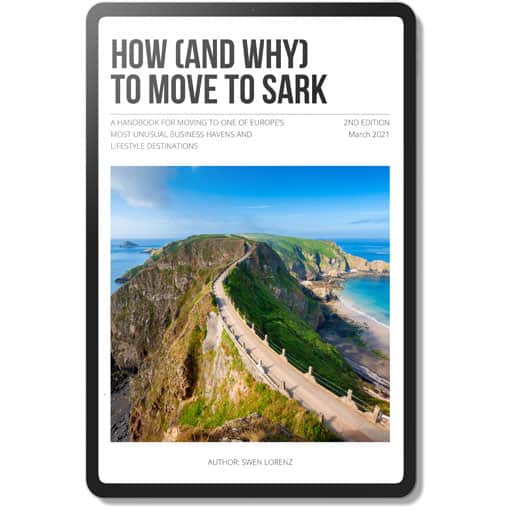“Your Network is your Net Worth.”
I was recently reminded of this old saying while working on a new venture. This new company would typically be near-impossible to get off the ground. However, with an existing network to rely on, it’s been advancing successfully and quickly. It’s still very early days where things are merely on the drawing board. However, thanks to existing contacts that have been brought to the table by myself and others, it has a fighting chance to succeed. Networks do have a net worth!
Which reminded me, I had long wanted to write an article about networks and networking.
Little did I know though what a gargantuan task I had set myself up for.
Why I will keep this short and sweet
For each subject that I could feasibly write about on this blog, I keep a folder with research material. Whenever I come across an article or other source material that might be useful for a future article, into the folder it goes.
Networks do have a net worth!
By the time I get to sit down and go through my magic folders, there is usually plenty of useful material in there already. That’s why it often doesn’t take me long to figure out the angles, scope, and length of an article.
Not so in the case of networks and networking. This folder was overflowing with material I had collected over the years.
It quickly dawned on me just how vast this entire subject was. So much had been written about it already by people who know way more about it than I do.
My possible options at this stage included:
- Planning to spend an entire month on researching and writing the definitive article about the subject. The result would have been merely a recap of what’s available elsewhere already, but trying hard to make it look like it is offering something new.
- Scrapping the idea altogether. After all, my readers can find plenty of good books to learn about the subject.
- Focussing on a small number of compelling, personal experiences that I have had. Call it my heartfelt recommendations.
You will not be surprised to learn that the third option was the winner.
Which also helped keep this article to a manageable length. The following ten minutes of reading might just improve your life a bit.
Boiling it down to the essence
A friend of mine recently said: “You know everyone.”
I recently asked myself, what are the key lessons about networking and networks that I have learned in my roughly 25 years in business?
Which, obviously, isn’t true. But I have long been known for knowing a lot of people. Being an avid socialiser, having worked on plenty of different projects, and having been reasonably good at keeping in touch with all sorts of people, my network has kept growing.
I recently asked myself, what are the key lessons about networking and networks that I have learned in my roughly 25 years in business? What do I need to improve for the future?
Three points stuck out:
1: Don’t network (ever!), instead focus on making friends
If I have learned ONE thing about networking and networks, it’s that “contacts” are worthless.
What you really want in life are friends – in your personal life, within your own company, or in any external professional relationships.
One entrepreneur I recently spoke to shared his no. 1 rule with me: “I don’t ever hire an employee that I couldn’t also be friends with.”
I strongly suggest you apply the same logic to your network, and to any approach you pursue for building your network further.
Don’t ever go to an event to “network” or to “make new contacts”. Only ever go anywhere or meet anyone to make new friends.
The truth is, “contacts” will only ever be of limited use to you. Their interests are hardly likely to ever match yours, and they’ll be too busy with their own set of challenges to be of any real use to you.
Collect friends, not contacts. Don’t network, but try to find new friends instead.
Friends, however, will have time for you. They are also much more likely to have some shared interest.
You can probably even trust them. Trust cuts down transaction costs because you’ll be able to deal with them based on a mutual understanding rather than involving expensive lawyers.
Collect friends, not contacts. Don’t network, but try to find new friends instead.
The logic of this should be self-evident, even though I have hardly ever seen it spelled out.
If I could travel back in time 25 years and live my career again, this would undoubtedly be something I’d consciously apply from day one.

Looking for clever ways to invest your hard-earned cash?
Head over to my investment website Undervalued-Shares.com for common sense investment opportunities from around the world. Ideas that you won’t find anywhere else!
2: Analyse, automate, and augment your circle of friends (“AAA”)
The following is mostly common sense, but it’s also a system that I believe takes a bit of time to practice. It becomes incredibly powerful once you have internalised it.
The average person is said to be able to keep in touch with about 150 to 200 people. Given the variety of needs one faces in professional life or business, for many this is not a sufficient number of friends to be able to call on.
However, each day only has 24 hours, and you have plenty of other things to do.
I committed numerous errors when it came to managing my own “network”, which is the key realisation I had when contemplating this article. When drawing up a list of where I needed to improve in the future, I came up with points such as:
- Due to knowing such an overwhelmingly large number of people, I have too little an idea where they all are, what they are up to, or why I might want to touch base with some of them.
- In amidst the general overload, I neglected to give special attention to those who would be worthy of getting special attention.
- My efforts to make new friends appear in my life are mostly haphazard.
Evidently, I have been in need of getting some order into this entire matter.
Here is how I am now going to resolve this. It’s a simple, three-step plan.
I am going to analyse the 150 to 200 most important friends that I have and focus on making more of a regular effort for them. Call them the top 1%, 10% or 20% of your network. It all depends on how you count them. The point is clear. This refer to the old 80/20 rule of 80% of all good things coming out of 20% of any system. You can vary these numbers, but no one doubts the overall validity of this point.
For everyone else, I have already created one half of the solution by having two blogs. Being an avid writer and blogger, it’s easy for me to keep everyone else abreast of what I am up to. Publishing my musings is a low-intensity form of keeping in contact. I’ll add to that becoming better at managing contact details (more about this shortly). Having everyone’s personal contact details will help make sure that I keep in touch with everyone at least once a year in some kind of fashion that is personal but uses technology instead of handwritten postcards. This approach is about automating the care and maintenance of my network.
This comes together to a system that is simple but effective. If you like, call it the AAA-system for managing your circle of friends.
To make sure I minimise the risk of missing hidden gems in my network, I’ll create a funnel for augmenting contacts to my closest circle of friends. How so? I have found that few other things in my life are as valuable a use of my time and as good an investment, as organising events. Dinners, group trips, or weekend happenings – these are all great for bringing people with a shared outlook together and having them become friends! Organise events and keep them open to people who would like to join them. The chances are that the right people will gravitate towards you, which takes most of the burden off you.
This comes together to a system that is simple but effective. If you like, call it the AAA-system for managing your circle of friends.
It requires one final point, which is the last remaining nut I need to crack for myself.
3: Keep control of your Rolodex, at all times and any cost
Improvements in technology offer us fantastic options for simplifying our life, and often even without any direct financial cost. LinkedIn is one such case, as are other social networks. It’s like having a free address book that allows you to reach out to your assorted contacts at any time and without any cost. Amazing, isn’t it?
Obviously, there is no such thing as a free lunch. Not only do these companies make money off your data (fair enough) or end up leaking and abusing your data (not cool). You also entirely lose control of your contact data, which then prevents you from automating the entire system.
Hand on heart, could you get in touch with everyone you know if all your social media accounts were closed down overnight? Do your social media accounts allow you to reliably reach everyone in your network, or does their algorithm determine how you can reach out to them? Are you even sure people check their social media inboxes?
Because of that, I went through the process of contacting most of my Facebook friends and getting their actual contact details:
- Corporate email.
- Private email if appropriate.
- Mobile phone number.
If your network truly is your net worth, should you leave it in the hands of a far-away company over the database of which you have no control?
You can do that, and I do wish you the best of luck with it.
I am on now in the final steps of a mission to ensure that all contact data of everyone relevant to me is in a database that I have full ownership and control of.
There is a lot more to this, but…
I am a big believer that to a good degree, success in life is indeed down to who you know. Having the right “contacts” – friends! – to count on is one of the most potent weapons you can arm yourself with for whatever plans and dreams you are pursuing.
If your network truly is your net worth, should you leave it in the hands of a far-away company over the database of which you have no control?
Needless to say, this can’t be created overnight. It’s a long-term project that you should pursue until the end of your career.
It’s quite possibly also one of the most rewarding. Because after all, what’s worth more in life than having lots of good friends?
If you liked this article, then you might also enjoy:
Want to print this article? Open a printer friendly version.
Did you find this article useful and enjoyable? If you want to read my next articles right when they come out, please sign up to my email list.
Share this post:


